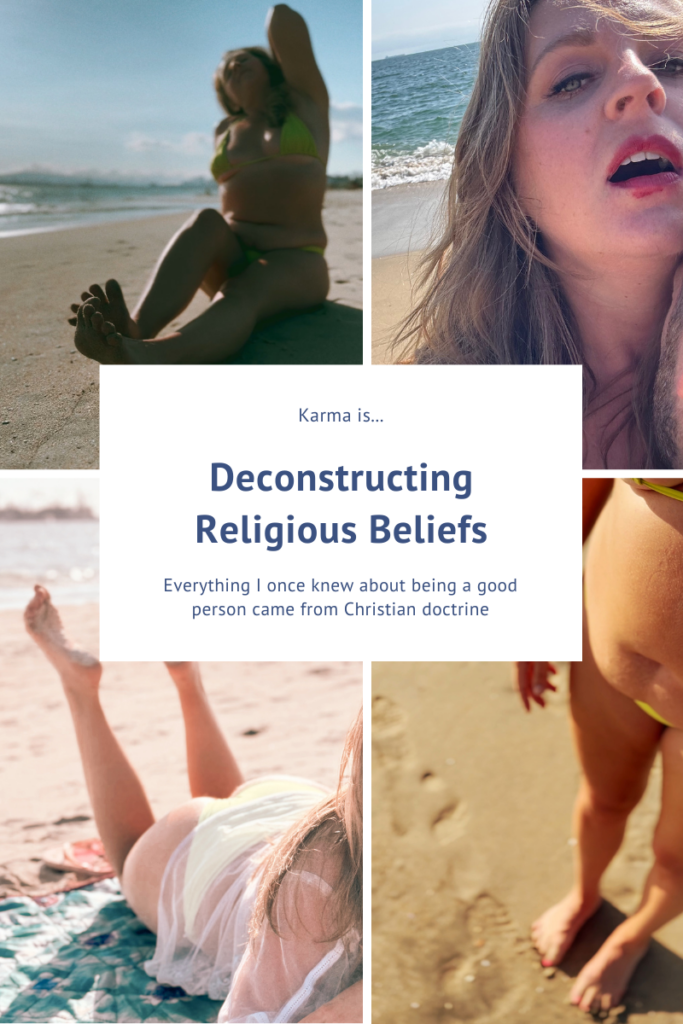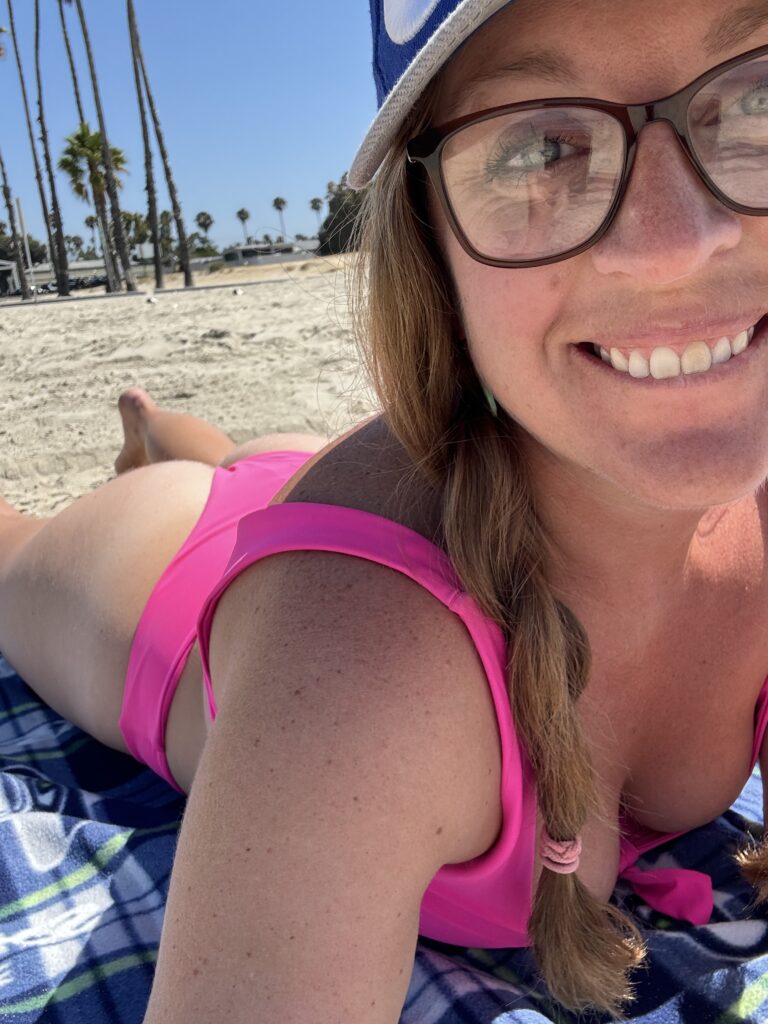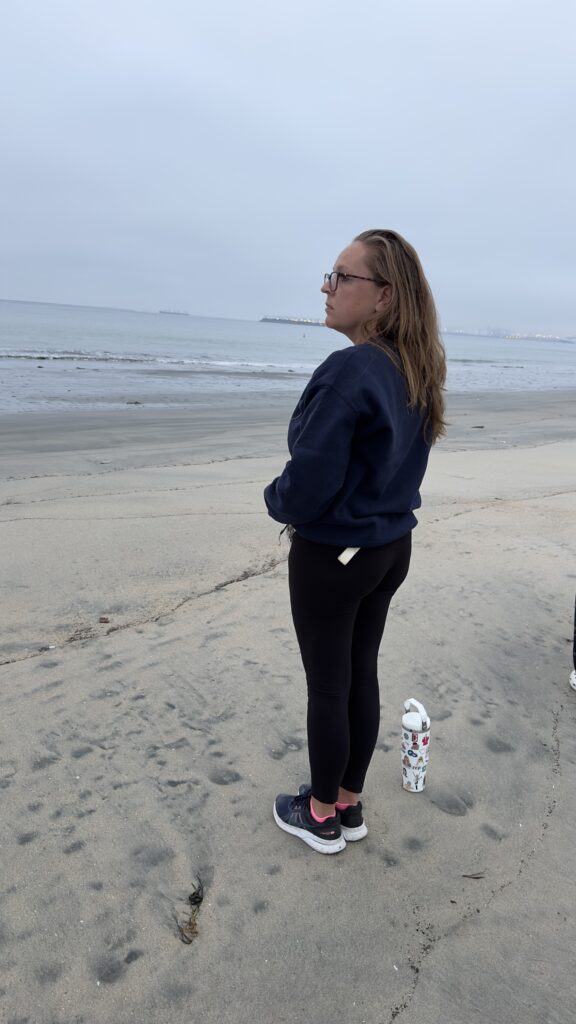For the past few years, I’ve been on a journey of deconstructing religious beliefs, and it has deeply impacted my sense of identity. Everything I once knew about being a good person came from Christian doctrine. You see, from a young age I tried my best to thrive within the strict boundaries it created. However I often pushed against the rules, constantly questioning and resisting.
Ironically, I used to feel grateful for the rules I now resent. Back then, I found comfort in having a clear guide for how to live my life, and I couldn’t understand why others didn’t want to follow it. To me, it seemed simple: these were the instructions for how to be good and ultimately get to Heaven.
During my early 20s, I would spend hours talking with my best friend about faith, morals, and of course the latest Grey’s Anatomy episodes. One conversation in particular sticks with me. I remember telling her how thankful I was for the rules that helped me navigate life with a singular focus: salvation. At that time, I didn’t prioritize evangelism. I had to secure my own path to Heaven before worrying about anyone else. It was like the airplane safety instruction: “Put on your own oxygen mask before assisting others.”
For a long time, I couldn’t imagine my life without Christianity. Living without a strict set of rules seemed impossible. In other words, Christianity grounded me. But as much as it gave me direction, this religion also stifled me. I felt boxed in, unable to explore life beyond the walls of doctrine.
When I started my journey into entrepreneurship, I gravitated toward Pure Romance, and that’s when my perspective began to shift. Why Pure Romance? Well, the producrs intrigued me. The subject was taboo, yes, but also universal. Unlike selling kitchen gadgets or storage containers, this was about something deeply personal that impacted everyone’s life. So, I became the Christian girl hosting Pure Romance parties.
Looking back, I realize this decision marked the true beginning of my deconstruction journey.
For two years, I hosted these girls-only parties without difficulty. Even signing up to sell Pure Romance felt easy. But you know what wasn’t easy? Telling people about my new job. I worried about how they’d react.
For example, I invited a woman from my church to my launch party. Instead of politely accepting or declining, she offered to take me out for coffee. Now at first that sounds like a nice thought. But then she followed up with: I’m concerned about your faith and how this might not be the best path for you. I did not accept her invitation for coffee.
Time and again, I was right to worry. Some didn’t hesitate to let me know what they thought, like my church friends. So, as I grew my business, I started to feel like I am novice trapeze artist walking a tight rope. I must stay completely balanced, otherwise Ifall off. That balance looks like being a knowledgeable, inclusive sex educator within the confines of Christianity. Yet I could never satisfy both sides of the conversation. Here I was, still a devout Christian, but also becoming a sex educator—a role that both empowered and isolated me.
As I shared more and more content online, the misunderstandings grew. Every day I prepared myself for criticism, but it still had me reeling at times. Despite this, I pushed forward in my business and my faith. I held onto my identity as a Christian Sex Educator, determined to challenge norms and fight for what I believed was right. All of this was part of my journey deconstructing religious beliefs, even if I didn’t fully understand it at the time.
To me, deconstruction means asking questions and letting curiosity lead, no matter where it takes you.
Now, as I look back, I find myself wondering: What makes me special anymore? My identity was so deeply tied to being “the Christian girl who talked about poop,” then “the Christian girl who talked about sex,” and eventually “the Christian sex educator breaking taboos in the church.” Then for a few years, I was the Christian Sex Coach training to become a sexologist.
However, everything changed one day and I almost lost everything. So, I fought like hell to make it through the fire storm of my life turned into.
The thing is, the person who emerged from the ashes no longer identifies as Christian.
But for so long, I clung to that identity. Now, without it, I keep asking: without Christianity, who am I? I don’t have all the answers yet, but I do know this: deconstructing religious beliefs isn’t just about unraveling them. It’s about rebuilding, embracing uncertainty, allowing yourself to grow, and defining who you are on your own terms.


